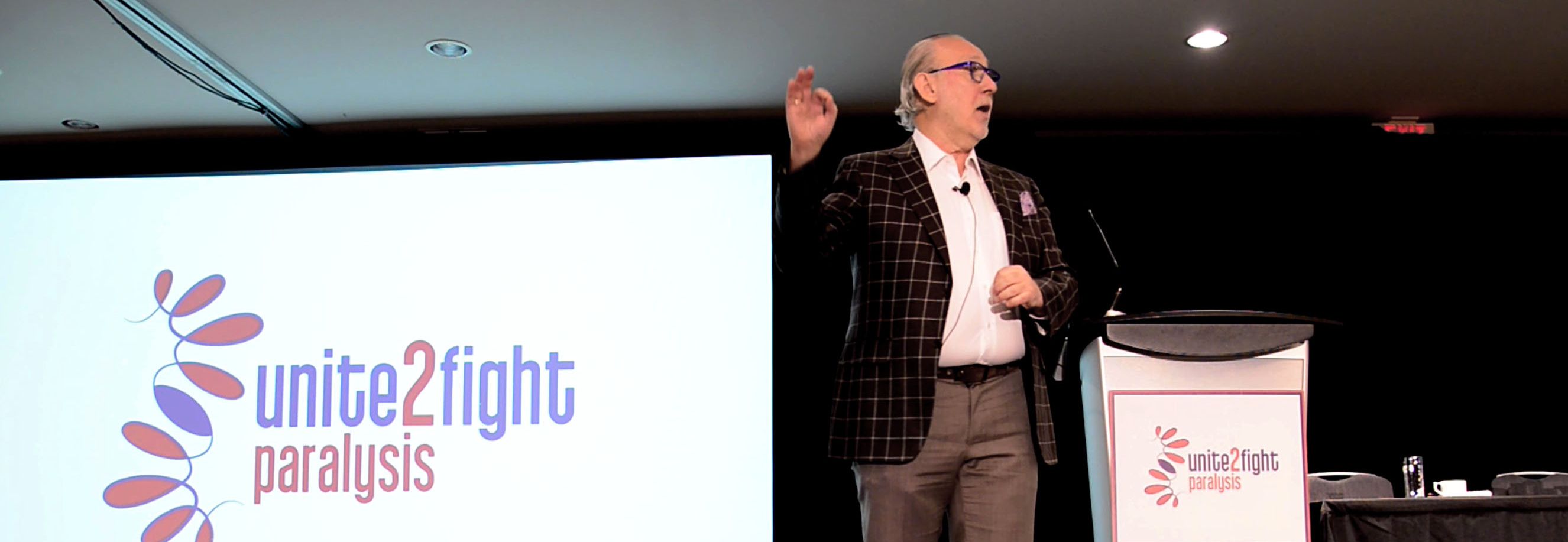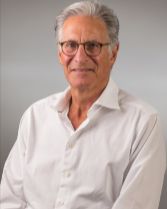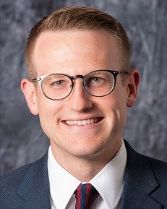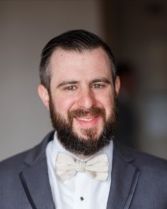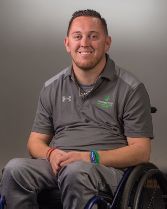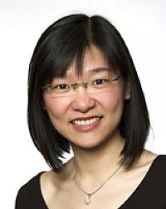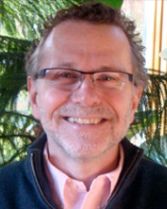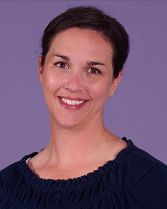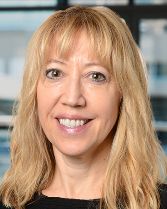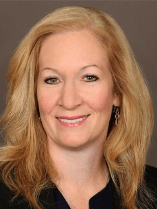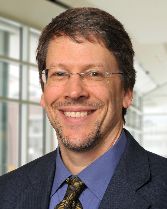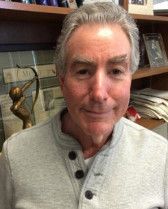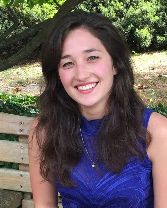Confirmed speakers and agenda as of September 13th, 2019.
-
Because his passion is for the chronically injured and the chronically ill, Mike has been presenting “Exercise is Medicine” to universities and organizations internationally including Israel, Italy, Madrid, and Ireland. He believes that now, more than ever, the health care industry and the fitness industry must join efforts in combating and preventing the progression of disease and the effects of injury.
Read More -
Dr. David Darrow is a neurosurgery resident at the University of Minnesota and is the principal investigator (PI) for the E-STAND Clinical trial. He received bachelor’s degrees in Physics and Mathematics at Texas A&M University, and then completed medical school at University of Texas Medical Branch, in addition to a master’s degree in public health with a focus on biostatistics.
Read More -
Dr. DePaul received his PhD from Case Western Reserve University, where his work covered multiple projects exploring different therapies to restore functional recovery after spinal cord injury. The first project used a cell-based, immune-modulatory therapy applied systemically after acute spinal cord injury. A second project aimed to regenerate axons in a chronically injured spinal cord. A third project explored PTPsigma’s role in regeneration failure and is the basis for NervGen’s regeneration technology. Dr. DePaul served as an advisor for Oregon Health & Science University's development of a preclinical spinal cord injury model to explore therapeutic treatments of traumatic SCI, and as a scientist at Neurona Therapeutics prior to his role at NervGen Pharma. Read More
-
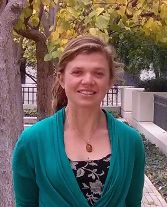 Alina Garbuzov | Postdoctoral Researcher at University of California, San Diego - School of Medicine
Alina Garbuzov | Postdoctoral Researcher at University of California, San Diego - School of MedicineAlina is a post-doctoral researcher in the lab of Mark Tuszynski at the Center of Neural Repair at UCSD Medical School. She attended Brown University for her undergraduate degree, where she studied Neuroscience and Molecular Biology. After Brown, she moved to California to attend Stanford Graduate School. During her PhD studies she fell while rock climbing and fractured her L1 vertebra. Alina was able to re-start school and complete her dissertation in the field of stem cell biology and genetics. She brings expertise in molecular biology, stem cell biology, and bioinformatics to a lab that specializes in stem-cell based treatment for SCI.
-
Hal Hargrave is the owner and founder of The Perfect Step and presently serves a role as the Facilities Manager as well as the Educational and Marketing Director. Hal became a part of the team back in 2007, shortly after he sustained a spinal cord injury in an auto accident. Hal was approached by Mike Alpert and the Claremont Club, in an effort to try and provide treatment to Hal and be a part of his ongoing therapy regiment and recovery.
What started in a small converted racquetball court for paralysis recovery, has now transpired into something far greater than what both Hal and Mike probably ever anticipated. Read More -
Jessica Kwok holds a PhD in Biochemistry from the University of Hong Kong. She was a postdoctoral scientist at the University of Cambridge (UK) and a Visiting scientist at both the University of Grenoble Alpes (France) and the Institute of Experimental Medicine, Czech Academy of Sciences (Czech Republic). Dr. Kwok's research interests include the role of chondroitin sulphates and perineuronal nets in spinal cord injury and memory.
Read More -
My laboratory studies how the nervous system controls our movements, such as walking and reaching, from the dual perspectives of brain development and recovery of movement function after brain or spinal injury. Our studies focus on the connections between the cerebral cortex and the spinal cord that control movements. We are interested in the mechanisms by which the specificity of these connections are established during development. We use a variety of animal models to study this question, including genetic approaches. We have discovered the importance of activity- and use-dependent plasticity in the development of connectional specificity in the cortical motor systems.
Read More -
Dr. Martin speaks nationally on topics related to Activity-Based Rehabilitation; she has taught many continuing education courses for rehabilitation professionals in the areas of neurological pathology, rehabilitation, and research. She has been the principal investigator and co-investigator for grants from the Paralyzed Veterans of America Education Foundation and Department of Defense to develop, promote, and disseminate an activity-based restorative therapy training program and curriculum.
Read More -
Dr. McTigue's laboratory focuses on the role of adult progenitor cells after CNS injury or disease. These cells have been shown to form new oligodendrocytes in vivo after demyelination, and to form oligodendrocytes, astrocytes and neurons in vitro. In recent studies, they determined that these cells spontaneously form a large number of new oligodendrocytes and remyelinate axons for several months after spinal cord injury.
Read More -
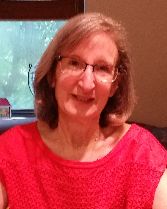 Susan Miller, M.D. | Coverage and Analysis Group, Centers for Medicare and Medicaid Services
Susan Miller, M.D. | Coverage and Analysis Group, Centers for Medicare and Medicaid ServicesDr. Miller is a Board-certified physiatrist in Physical Medicine and Rehabilitation. She practiced clinical medicine for approximately two decades across a spectrum of inpatient and outpatient settings and then joined the Coverage and Analysis Group at the Centers for Medicare and Medicaid Services.
-
Dr. Parr's research currently centers around transplanting neural stem cells grown from a patient's own skin into the injured spinal cord. She has an active translational research laboratory at the Stem Cell Institute. She is interested in examining mechanisms of functional recovery using techniques such as histology and immunohistochemistry, cell tracking through magnetic resonance imaging, and animal modeling.
Read More -
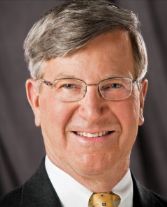 P. Hunter Peckham, PhD | Donnell Institute Professor of Biomedical Engineering and Orthopaedics, Distinguished University Professor
P. Hunter Peckham, PhD | Donnell Institute Professor of Biomedical Engineering and Orthopaedics, Distinguished University ProfessorThe major area of Dr. Peckham’s research is in rehabilitation engineering and neuroprostheses. Dr. Peckham’s research effort focuses on functional restoration of the
paralyzed upper extremity in individuals with spinal cord injury. He and collaborators developed a number of implantable neural prostheses which utilize electrical stimulation to control neuromuscular activation. They have implemented procedures to provide control upper extremity in individuals with tetraplegia, enabling individuals with central nervous system disability to regain the ability to perform essential activities of daily living. His present efforts concern technology development, expansion of the indications for this technology, and technology transfer. -
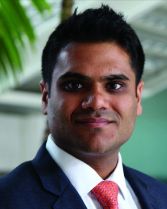 Vivek Pinto, PhD | Chief, Physical Medicine and Rehabilitation Devices Branch at FDA
Vivek Pinto, PhD | Chief, Physical Medicine and Rehabilitation Devices Branch at FDADr. Vivek Pinto currently serves as an Assistant Director in the Division of Neuromodulation and Rehabilitation Devices in the Office of Health Technology #5: Neurological and Physical Medicine Devices in the FDA currently managing the Acute Injury and Neurodegenerative Device teams. Dr. Pinto earned a B.S. degree in Mechanical Engineering from the University of Pittsburgh and M.S. and Ph.D. degrees in Ergonomics and Biomechanics from New York University. He worked as a mechanical design engineer and a clinical researcher prior to joining the FDA. In 2012, he joined the Agency as a scientific reviewer reviewing electrical stimulators, wheelchairs, exoskeletons, amongst other devices for rehabilitation purposes. Since 2014, he served as a Chief in the Center for Devices and Radiological Health (CDRH) for several different branches. Dr. Pinto regularly provides industry with information to help expedite access of safe and effective rehabilitation devices for individuals with disabilities.
-
The Center for Brain and Spinal Cord Repair lab is an interdisciplinary research group dedicated to studying the complexities of CNS injury, inflammation and tissue repair. They are currently funded by the NIH to explore the consequences of resident (e.g., microglia) and recruited inflammatory cell (e.g., macrophages, T-lymphocytes) activation on axonal injury, demyelination and neurological function in models of rat and mouse SCI. Dr. Popovich also serves as the Chair of U2FP's Scientific Advisory Board
Read More -
Dr. Silver received his PhD from Case Western Reserve University in 1974 and was the recipient of the Herbert S. Steuer Memorial Award for Meritorious Original Research in Anatomy. He did post-doctoral work at Harvard University in the Department of Neurosciences at The Children’s Hospital and in the Neuropathology Department at Harvard Medical School. Dr. Silver is currently Professor in the Department of Neurosciences at the Case Western Reserve University School of Medicine.
Read More -
Lyandysha (Lana) Zholudeva completed her Bachelor of Science in Chemistry with a Minor in Biophysics at Creighton University, where she worked on developing non-invasive imaging techniques for quantifying cellular metabolism. Lana recently completed her doctoral work with Dr. Michael Lane in the Department of Neurobiology & Anatomy at Drexel University College of Medicine and has continued on as a postdoctoral fellow. The goal of her work is to transplant neural progenitor cells to repair the injured cervical spinal cord, with a focus on improving respiratory function. Her research aims to identify specific subsets of neural precursors that are most effective for promoting spinal cord repair, and assessing whether combining transplantation with rehabilitation improves donor-host integration and functional improvement. Read More
Schedule of Events
Thursday, October 3, 2019 – Arrival Day
5:00 - 7:00pm: Early Registration & Check-In
__________________________________________________________________________
Friday, October 4, 2019
7:30 – 9:00am: Registration & Continental Breakfast – Exhibitor Visits
9:00 – 9:10am: Opening Remarks & Welcome - Matthew Rodreick, Unite 2 Fight Paralysis & John Chae, MetroHealth
9:10 – 9:30am: Epidural Spinal Cord Stimulation for Spinal Cord Injury: E-STAND Update - David Darrow, University of Minnesota
9:30 – 9:50am: The Neurobiological Effects of Stimulating the Nervous System after Spinal Cord Injury - John H. Martin, CUNY School of Medicine
9:50 – 10:10am: Restoration of Function with Implanted Neuroprostheses - P. Hunter Peckham, Case Western Reserve University
10:10 – 10:30am: Facilitated Panel Discussion - David Darrow, John H. Martin, P. Hunter Peckham, Matthew Rodreick - Moderator
10:30 – 11:00am: Break – Exhibitor Visits
11:00 – 11:10am: Introduction to Participant Panel - Kim Anderson, Case Western Reserve University School of Medicine
11:10 – 12:00pm: FES/Stim Participant Panel - Panelists (each of whom have a device implanted for the restoration of a variety of functions):
Lynn Wolf, Ian Burkhart, Maria Suttor, Jason Shaw, Jen French, Laszlo Nagy, David Powers, Kim Anderson - Moderator
12:00 – 12:30pm: Question & Answer Session
12:30 – 1:30pm: Lunch – Exhibitor Visits
1:30 – 1:50pm: Regulatory Considerations to Bring Assistive and Therapeutic Devices to the Community: An FDA Staff Perspective - Vivek Pinto, Food & Drug Administration
1:50 – 2:10pm: Coverage 101+ - Susan Miller, Centers for Medicare and Medicaid Services
2:10 – 2:30pm: Facilitated Panel Discussion - Rebecca Martin, Susan Miller, Vivek Pinto, Megan Moynahan - Moderator
2:30 – 2:45pm: Facilitated Question & Answer Session
2:45 – 3:00 pm: U2FP Board Member Appeal - Barry Munro, CSRO
3:00 – 3:30 pm: Break – Exhibitor Visits
3:30 – 3:50pm: Overcoming Barriers to Functional Regeneration and Plasticity after SCI - Jerry Silver, Case Western Reserve University
3:50 – 4:10pm: Protein Tyrosine Phosphatase Inhibitors for Spinal Cord Injury Therapy - Marc DePaul, NervGen Pharma Corp.
4:10 – 4:30pm: Non-invasive Treatment for Functional Recovery after the Spinal Cord Injury - Jessica Kwok, University of Leeds
4:30 – 4:50pm: Facilitated Panel Discussion - Marc DePaul, Jerry Silver, Jessica Kwok, Alexander Rabchevsky - Moderator
4:50 – 5:00pm: Day 1 Wrap-Up
5:00-7:00pm: Networking Reception
Dinner on your own
__________________________________________________________________________
Saturday, October 5, 2019
7:30 – 9:00am: Registration & Continental Breakfast – Exhibitor Visits
9:00 - 9:10am: Opening Remarks & Welcome - Matthew Rodreick, Unite 2 Fight Paralysis
9:10 - 9:30am: Neural Cell Therapy for Spinal Cord Repair - Lyandysha Zholudeva, Drexel University College of Medicine
9:30 - 9:50am: Neural Stem Cell Grafts as Treatment for Spinal Cord Injury - Alina Garbuzov, University of California San Diego School of Medicine
9:50 - 10:10am: Regionally Specific Spinal Neural Progenitor Cells in a 3-Dimensional Bioprinted Scaffold: Why Specificity Matters - Ann M. Parr, University of Minnesota Medical School
10:10 - 10:30am: Facilitated Panel Discussion with Question & Answer Session - Lyandysha Zholudeva, Alina Garbuzov, Ann M. Parr, Alexander Rabchevsky - Moderator
10:30 – 11:00 am: Break — Exhibitor Visits
11:00 – 11:20 am: The Gut Microbiome and Spinal Cord Injury - Phillip Popovich, Ohio State University
11:20 – 11:40am: Spinal Cord Injury Causes Chronic Liver Pathology and Metabolic Disruption in Rodents - Dana McTigue, Ohio Statue University
11:40 – 11:50am: Combined Question & Answer Session
11:50 – 12:50pm: Lunch – Exhibitor Visits
12:50 – 1:10pm: Transcutaneous Spinal Cord Stimulation and Activity-Based Therapy: What Does it Mean for Me? - Rebecca Martin, Kennedy Krieger Institute
1:10 – 1:25: Exercise is Medicine: How to Reduce Secondary Complications and Increase Quality of Life Outcomes for Individuals with Spinal Cord Injury (Part 1) - Hal Hargrave, The Perfect Step
1:25 – 1:40: Exercise is Medicine: How to Reduce Secondary Complications and Increase Quality of Life Outcomes for Individuals with Spinal Cord Injury (Part 2) - Mike Alpert, The Perfect Step
1:40 – 2:00pm: Combined Question & Answer Session
2:00 – 2:30pm: Break - Exhibitor Visits
2:30 – 2:35pm: Introduction to Participant Panel: “SCI2020 - One Funders Perspective”, Kym Eisner, Craig H. Neilsen Foundation
2:35 – 3:00pm: SCI2020 Panel Discussion - Michael Lane, Matthew Bellman, Ernest Wong, Barry Munro, David Darrow, Matthew Rodreick - Moderator
3:00 – 3:30pm: Panel Question & Answer Session
3:30 – 4:00 Cure Advocacy Network (CAN) Panel Discussion - Jacob Chalfin (PA), Allie Leatherman (OH), Peter Nowell (OH), Jeni Belt (OH), Matthew Rodreick - Moderator
4:00 – 4:20pm: Panel Question & Answer Session
4:20 – 4:30 pm: Conference Wrap Up
End of Conference

